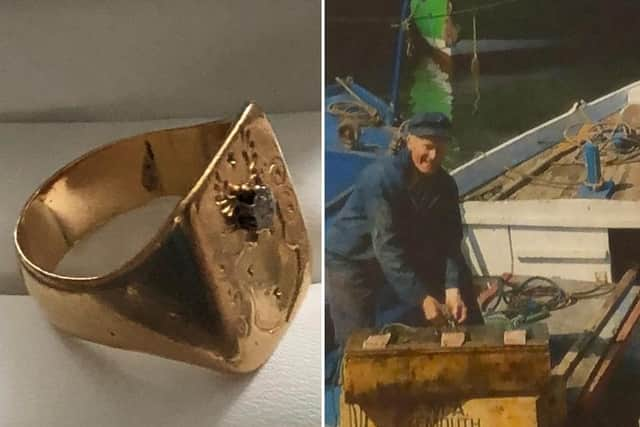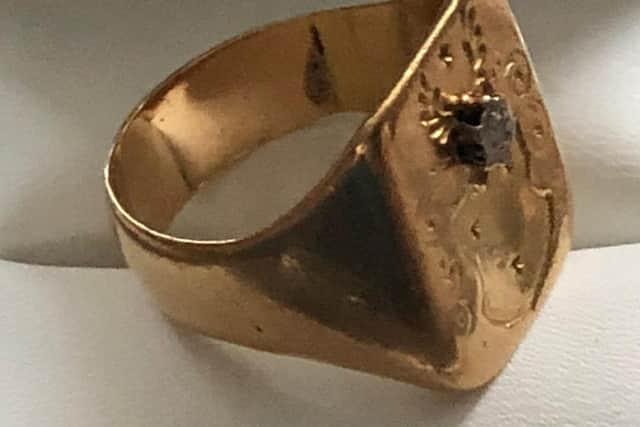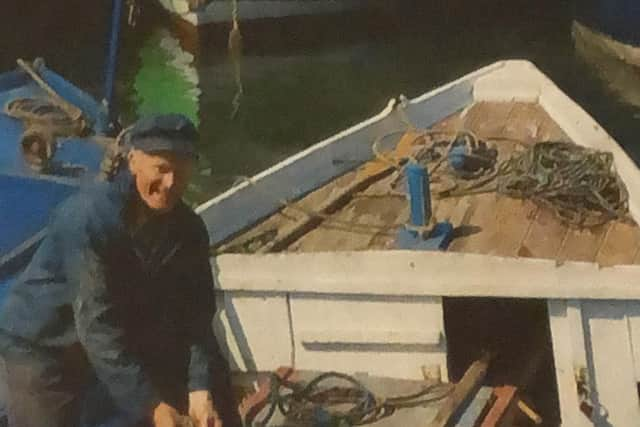Battle of the River Forth: German gave gold ring to thank Edinburgh fishermen who saved his life in 1939
and live on Freeview channel 276
At the age of just 25, Storp, the son of a noble family from the Harz mountain range, had already served in the Condor Regiment in the Spanish Civil War.
The month before the attack on the Firth of Forth, Storp had gained an Iron Cross for an attack in the North Sea which had seen the huge British battlecruiser HMS Hood limp off, badly damaged, for Scapa Flow.
Advertisement
Hide AdAdvertisement
Hide AdOberleutnant Storp was second-in-command of the attack on October 16, and led the second wave of four German planes.


When they reached the target area they attacked the ships by the Forth Bridge, before being accosted by Spitfires.
One of the plane’s gunners, Friedrick Kramer, was killed, and Storp’s plane was then shot down by Flight Lieutenant Pat Gifford about four miles off Port Seton, the first German aircraft brought down over Britain since the First World War.
John Dickson, a fisherman from Port Seton in his early twenties, was aboard trawler Dayspring with his father, John Dickson senior, searching for mines in the Forth.
Advertisement
Hide AdAdvertisement
Hide AdThey witnessed the aerial dogfight and saw the Luftwaffe plane fall to the water.


The skipper, John Dickson Sr, wanted to leave the boat to sink and the German pilot to drown.
But his son, John Dickson Jr, persuaded him to rescue the stricken pilot, asking his father what he would want the Germans to do if the roles had been reversed.
“I was always impressed by the humanity of the situation,” said John Dickson Jr’s grandson, Malcolm Cameron, 46.
Advertisement
Hide AdAdvertisement
Hide AdStorp was so overwhelmed with gratitude to his rescuers that he presented Mr Dickson Jr with a treasure: his gold family ring bearing the Storp crest.


Storp was so overwhelmed with gratitude to his rescuers that he presented Mr Dickson Jr with a treasure: his gold family ring bearing the Storp crest.
Mr Dickson Jr left the ring to Mr Cameron when he died in 2003.
“I don’t feel like I have the right to wear it until I do something suitably heroic,” said Mr Cameron.
Advertisement
Hide AdAdvertisement
Hide Ad“It was in keeping with grandad’s character, he was a Christian man, and always treated people the way he wanted to be treated.”
His grandfather’s action inspired Mr Cameron to help people in his own life, and led him to become a doctor.
Storp saw out the war as a prisoner and returned afterwards to Germany where he became a renowned composer.